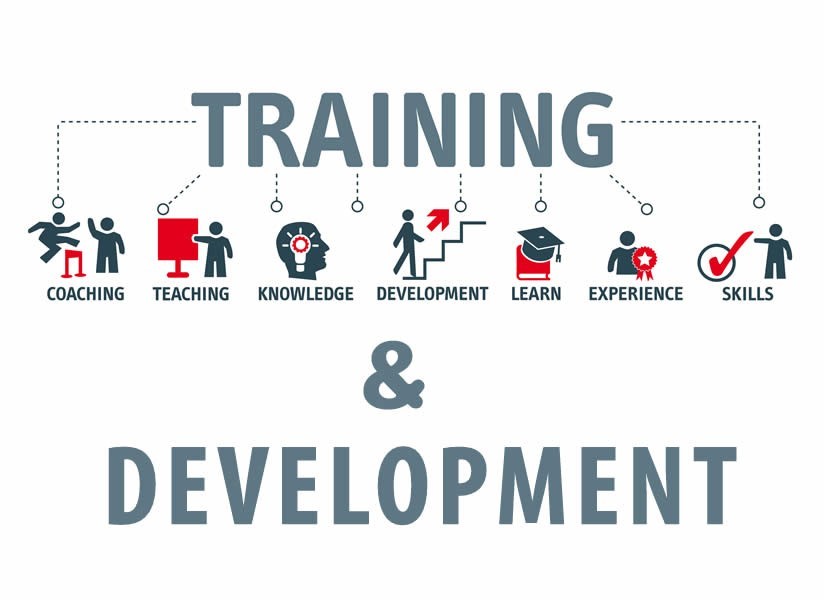How HR Can Meet Evolving Employee Expectations in 2024
The world of work is in flux.The growing trend of remote work, the adoption of the Great Resignation approach, and specific attention towards work-life balance have altered the ways employees perceive the meaning of their jobs and their relationship with their employers. HR departments that anticipate the future needs of top talent and are, therefore, diligent in meeting these evolving expectations by staying at the forefront need to understand and meet these requirements.
In this blog, let’s look at evolving employee expectations and discuss what vital measures HR managers should take to stay abreast of any changes.

An Evolving Scenario: Employee Wants and Needs
Modern-day employees, especially the young generation like the millennials and Gen Z, place high value not only on financial pay, but also on additional items like meaning, purpose, and contribution.
Here are some key trends in employee expectations:
• Work-Life Balance: Employees are looking for the right way to manage their opposing roles as workers and humans. This type of tasks involves having a work-life balance, because of flexible working options, remote work opportunities, and Сlear lines about after-hours communication.
• Wellbeing and Mental Health: Behavioral health consciousness is the trend nowadays; hence, consumers are looking for employers who are looking to protect their well-being. The mental health of these workers should be taken into consideration thus better benefits should be offered accompanied by healthy work habits. By so doing, the owners should create a workplace where their employees are supported.
• Diversity, Equity, and Inclusion (DE&I): Employees today would rather join organizations that consider diversity and inclusion as a business priority, as these values represent the changing world. In this context, it will be about creating a working environment that everyone respects, recognizes, and feels good about having chances for progress.

• Learning and Development Opportunities: Employees aim to be lifelong learners and their careers should evolve to accommodate this constant learning and personal development. Therefore, the provision of avenues whereby workers can cultivate their skills, receive coaching, and have a chance for career growth is part of the responsibilities of employers.
• Meaningful Work: A team member thrives when he or she has a clear idea of the purpose of a task accomplished, and that his contribution matters. This shifts the focus to the compatibility of company values with employee values and the possibility of getting employees to see the end result of their ventures in the organization.
Strategies for HR to Meet Evolving Employee Expectations
Finally, how can HR personnel restore the corporate image and win the public’s trust in such a way so that the company can meet the requirements during their evolution to the new norms? Here are some actionable strategies: Receiving Below, you will find some practical strategies:
• Conduct Regular Employee Surveys: Do remind the service providers about their needs and preferences through staff surveys and focus groups periodically, to make sure that the staff members have what they want and need. Therefore, they develop a feeling of being cherished and will know how hard it may sound, but the fact is that you are committed to them. Through this process, you’ll be able to see the spots that you need to work more on, which will enable you to customize your HR policies accordingly.
• Offer Flexible Work Arrangements: Not only remote jobs but also other job categories such as shorter business hours and flexible beginning and end times today are not only an extra comfort but a standard necessity for many people. Attempt the solutions, which are, the realm of the private will definitely find rules and regulations which match their sense of self without undue stress and strain.
• Prioritize Employee Well-being: Consider devoting the money to employees’ welfare programs that are good for their mental and physical problems. This may involve the creation of a health insurance plan that covers mental health issues, providing employees Employee Assistance Programs (EAPs), offering these employees advice related to health care knowledge, or, to, say, encouraging preferred healthier lifestyles through holding intramural fitness classes and healthy workplace snacks.
• Foster a Culture of DE&I: Establish an office atmosphere where every shareholder becomes involved and participative in the creation of an environment that is participative as well as friendly. This process is triggered by ensuring that unconscious bias training is given to candidates not well represented in the hiring panels as a sure way of providing a communication channel where incident reports of discrimination and harassment can be made.
• Invest in Learning and Development: Create career journey classes and emphasize on a learning attitude as the cornerstone to their career achievement. Some of the things could be the launch of a scholarship scheme, associating employees with career progression, presenting sponsorship to employees to be able to attend workshops, conferences, or giving in-house training programs.
• Empower Employees and Give Them Ownership: Ensure that your team members can own their work, which they should also do with the authority to make judgments and execute if necessary. By the end of this discussion, they will become their own advocates and will be able to feel the personal engagement, interest, and investment level in their own objectives for the future.
• Recognize and Reward Achievements: Give all due credit and appreciation to your teammates on a regular basis for their important input. Acknowledgment is what you get by recognizing and rewarding people for their hard work and results. The diversity of such proposals may mean that companies use both cash alternatives and non-monetary recognition, for instance, by publicly acknowledging awards and promotions.

• Communicate Openly and Transparently: Establish easy and clear communication routes motivating employees. Discuss with them your company plans, adjustments, and challenges faced. As a result, they will be appreciated because they will not be looked upon as working to gain position against each other.
• Be Agile and Adaptable: The world of work is constantly changing, so it’s important for HR departments to be agile and adaptable. Be prepared to adjust your HR practices as needed to meet the evolving needs of your employees.

Conclusion
By understanding and meeting the changing expectations of employees, HR departments can create a more engaged, productive, and successful workforce. Remember, it’s not just about keeping up; it’s about getting ahead of the curve and becoming an employer of choice in today’s competitive job market. By prioritizing employee well-being, offering flexible work arrangements, and fostering a culture of learning and development, HR departments can position their companies for long-term success.

